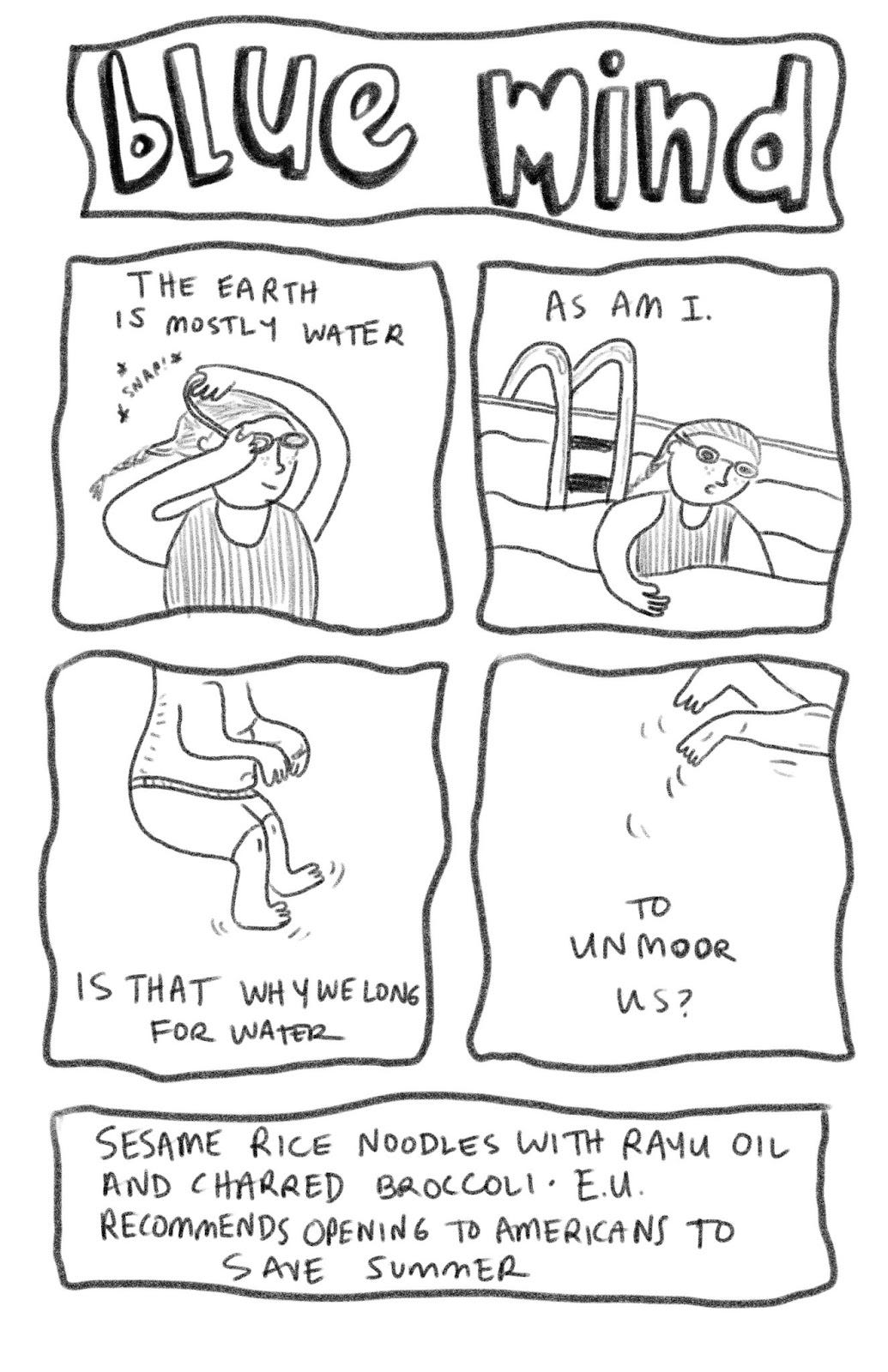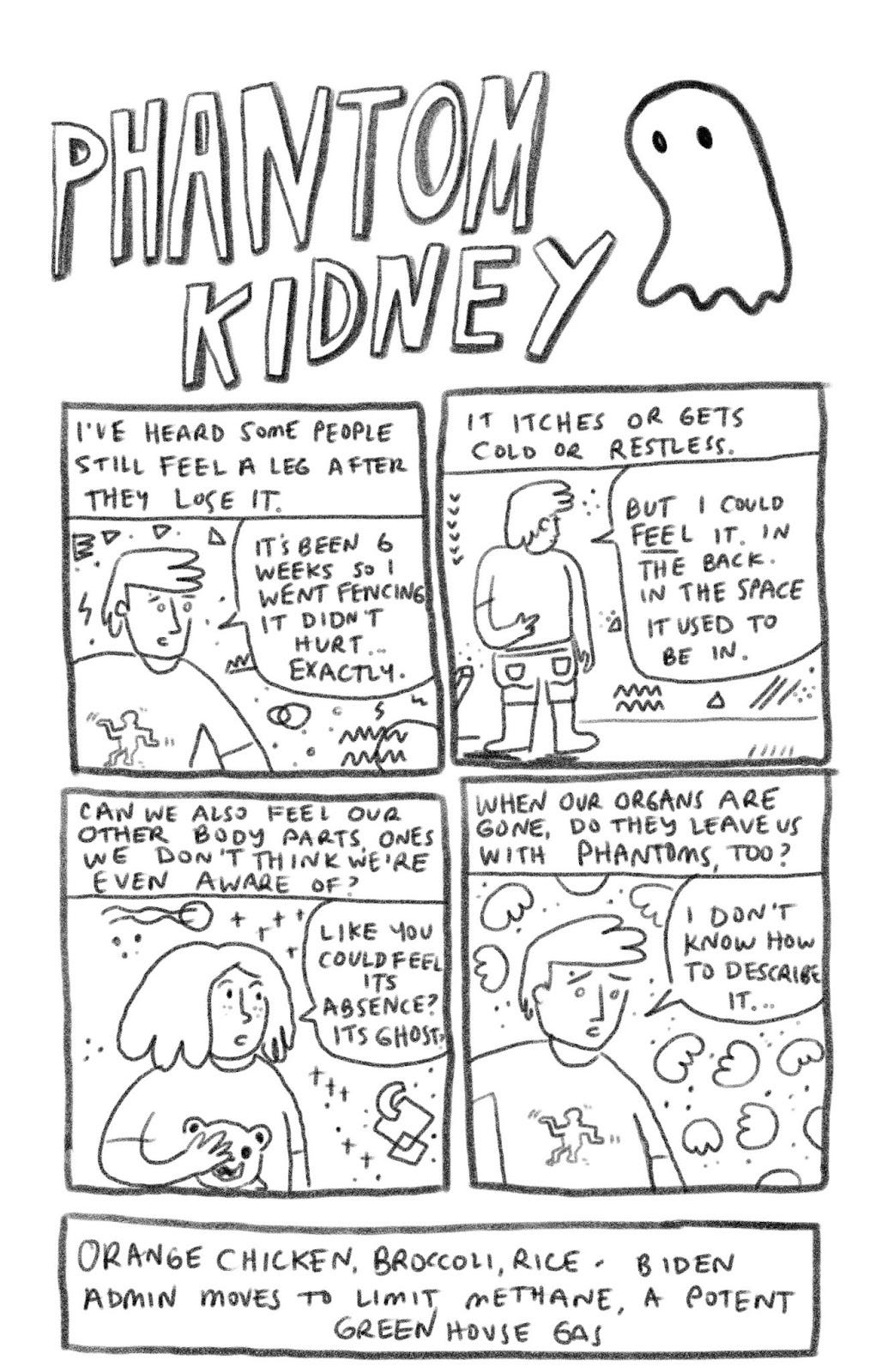Nora, here - I just wanted to say a few things about my colleague and friend Amaris’ book, Unfiltered, before we dive into our book club about it. First off, I couldn’t ask for a better thinkin’, writin’, teachin’ about comics partner. Amaris always pushes me to think more deeply and widely about the comics form. Her book does the same, too, taking a diaristic and poetic, sharp and searching approach to her partner’s cancer diagnosis and her life as it goes on amidst this earth-shattering news. I read this book in one airplane ride, completely immersed and feeling as if I had traveled more than just geographical miles when the plane landed. I encourage everyone to grab this affecting book and head on into our book club:
In the heart-warming and deeply personal graphic memoir by Amaris Ketcham, Unfiltered: A Cancer Year Diary, we embark on a year-long journey that intertwines everyday joys, the trials of a cancer diagnosis, and the indomitable strength of the human spirit. Starting as an innocent daily diary comic, it soon becomes a raw, authentic, and often humorous chronicle of her partner's fight against cancer. Against the backdrop of medical tests and surgeries, Ketcham's pen captures the delightful simplicity of daily life – the playful antics of their cats, the comforting rituals of cooking meals, the invigorating respite offered by nature hikes – all reminders that even in the midst of trials, life persists. This is not just a memoir about cancer; it’s a memoir about life, resilience, and the power of hope.
Book club questions:
Each entry contains something Ketcham ate that day and a headline from the news. What effect does this subscript produce? What might you include to mark the passage of time in a diary?
How does Ketcham use poetic elements throughout the graphic memoir? Consider lyricism, sensory details, line breaks, and metaphorical images.
What/who appears frequently? Do they represent anything (i.e. her cats…)? How do you get to know Andy? Conversely, what is less present? Do you think the lack of certain parts of Ketcham’s life is intentional? Who or what would appear in your diary comic?
The diary form is (obviously) a different way to capture a life than an autobiography or memoir. How does the diary form distill Ketcham’s life? How is it different from autobio or memoir, and what would this story look like in those forms?
How does the use of the diary comic format in Unfiltered contribute to our understanding and empathy towards the patient and caregiver experience in dealing with serious illness? In what ways does this format challenge or enhance traditional narratives of medicine and healthcare?
Each entry has its own title – how do these inform the attendant comic? How do the titles shape the overall story told by the whole book? Come up with a few titles that could precede a daily comic of your own.
Drawing activity: Draw your own diary comic! Begin warming up by writing down something you ate, or what the weather is like, or the phase of the moon, or something else you would like to note. Use this time to reflect on your day: was there conflict? Resolution? Did something funny or sad or challenging happen? Select something to focus on and give it a title. Then draw four panels. Add your own writing and images.
Feel free to add your questions in the comments section below, or let us know how your own books discussions go.
Miscellaneous Links
Get a copy of Unfiltered: A Cancer Year Diary.
Learn more about graphic medicine at their site, and at Nora’s profile in Medicinal Media.
Read what Amaris has to say about keeping a diary comic and in this article.








